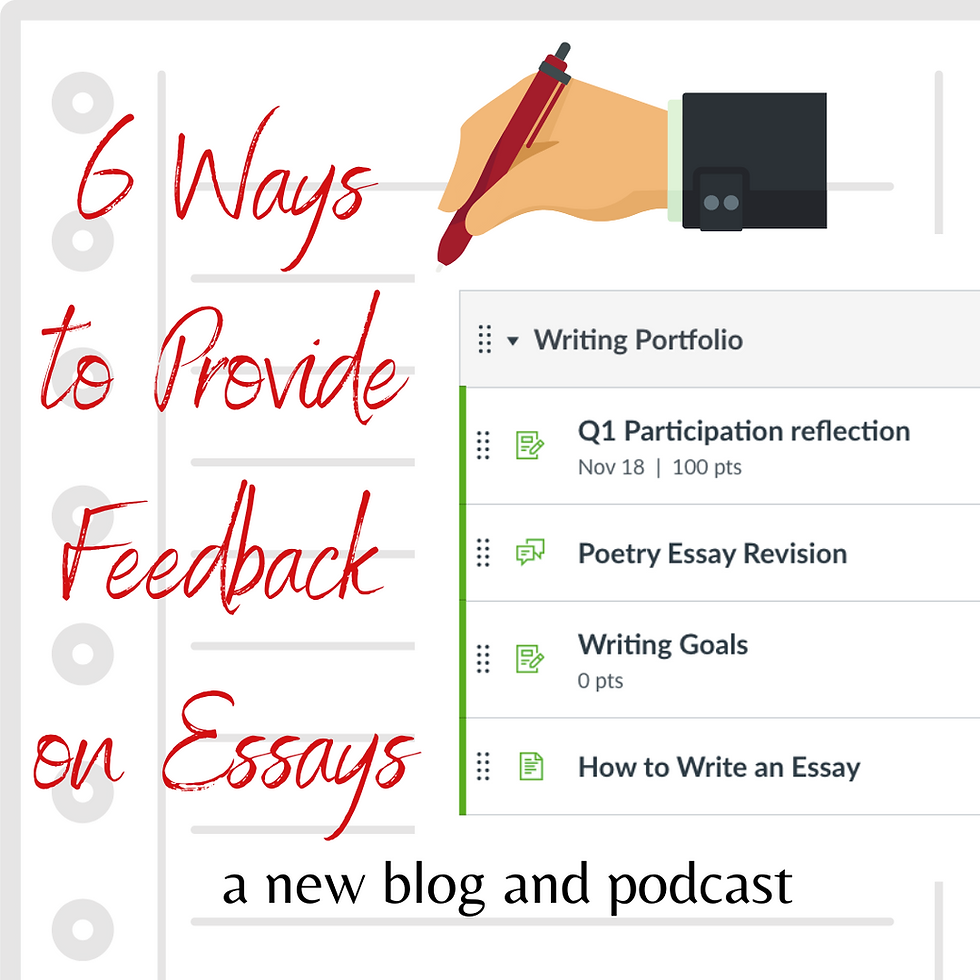The Teaching of Writing: Feedback and Revisions
- Teacher's Workshop

- Dec 10, 2020
- 2 min read
Updated: Jun 5, 2024
Tomorrow I’ll give virtual feedback on an essay my students wrote on a poem. I usually provide feedback right before I assign the next essay, so the goals they establish are fresh in their mind. By feedback, I mean a variety of things:
verbal feedback I give to the entire class on various issues I noticed in their writing (I take notes while I grade)
feedback on revisions that students post online and a review of model work
individual feedback in the form of conferences (while the rest of the class revises a part of their essay)
written feedback (including feedback from a comment bank or uploaded audio commentary)
feedback on a checklist or rubric that contains expectations for writing the essay
feedback from their peers (a feature in Canvas)
All of these ways of giving feedback allow me to spend less time on the dreaded #4, written feedback. We all know that verbal feedback and a good conversation can help just as much or more than written feedback.
Every time I hand back an essay, I give my students the opportunity to revise one part of their essay (not the whole thing), and I eventually allow them to pick what part they will revise. The goal (especially since I teach seniors) is to have students know what part of their essay needs revision without teacher feedback. We don’t want them to rely on us too much. We want them to think for themselves. I usually go in this order and then allow them the option to pick the section of their essay they want to revise:
first essay: revise the thesis statement
second essay: revise the thesis statement and supporting sentences
third essay: revise one interpretation of evidence or a quote
forth essay: revise the introduction
fifth essay: revise the conclusion
sixth essay: revise a body paragraph and its logic (line of reasoning)
After they revise and post their revision, we quickly go over some models and they set a few goals for their next essay. Those goals can relate to their writing, or the writing process (reading, taking notes, participating in conversations, brainstorming, prewriting, etc.). I also like to keep my writing checklist the same for all essays so that students can easily keep track of their progress throughout the year. I created a module (unit) in Canvas that will contain all of their essay revisions, an assignment where they can submit a Google document with their writing goals, and their quarterly reflections.
By essay, I do not mean just the interpretation of literature; it is a response to any question. This whole process might seem academic and boring, but when we explore ways to best answer a question with our students, we’re with them in the ongoing journey of education: the journey to find the best and clearest answers to life’s questions. That journey should be a risky and exciting adventure, with unexpected and surprising discoveries.
Teachers Pay Teachers




Comments